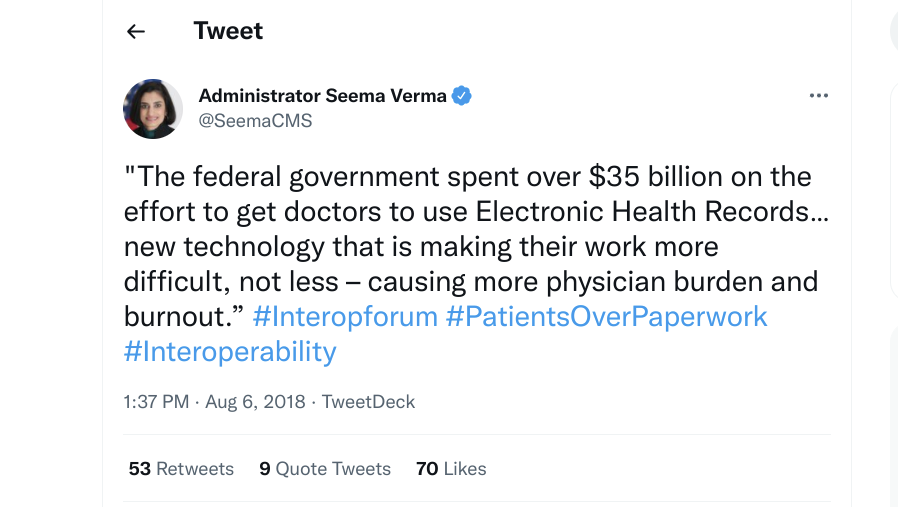


SOUTHFIELD, MICHIGAN - It is well-known that healthcare is broken in the United States. In addition to the pandemic, which has added more stress to already stressed-out frontline workers, an even bigger culprit that has contributed to burnout amongst physicians and nurses has been electronic medical records (EMR). Seema Verma, the former administrator in charge of the Centers for Medicare & Medicaid Services, once tweeted:

The advent of artificial intelligence (AI) affords a great opportunity to clean up some of this mess and let computers shoulder some of the burden that has unduly been put on frontline workers. However, for this opportunity to be productive and live up to its potential, physicians need to be educated and integrated into AI companies to give guidance on what is needed from such technologies. An endless array of opportunities is present within healthcare for AI to improve, and the most mainstream methods will be outlined here where AI will likely permeate the US healthcare system for its betterment in the coming years.
Many silos exist in US healthcare, which are mainly caused by health systems not integrating their EMR data with other health systems in their city, e.g., even when hospitals in the University of California hospital system all used the same EMR system, none were communicating with each other even though all were on one EMR platform. To address this, Center for Medicare & Medicaid Services (CMS) has now mandated a gradual EMR interoperability requirement for continued reimbursement from CMS. AI, however, has the potential to take this a step further by breaking down these silos and allowing information to be more interoperable not only in the same city, but also among different health systems across the country.
If there was one benefit of the EMR system in the Veterans Adminis
The content herein is subject to copyright by The Yuan. All rights reserved. The content of the services is owned or licensed to The Yuan. Such content from The Yuan may be shared and reprinted but must clearly identify The Yuan as its original source. Content from a third-party copyright holder identified in the copyright notice contained in such third party’s content appearing in The Yuan must likewise be clearly labeled as such. Continue with Linkedin
Continue with Linkedin
 Continue with Google
Continue with Google












 1285 views
1285 views





